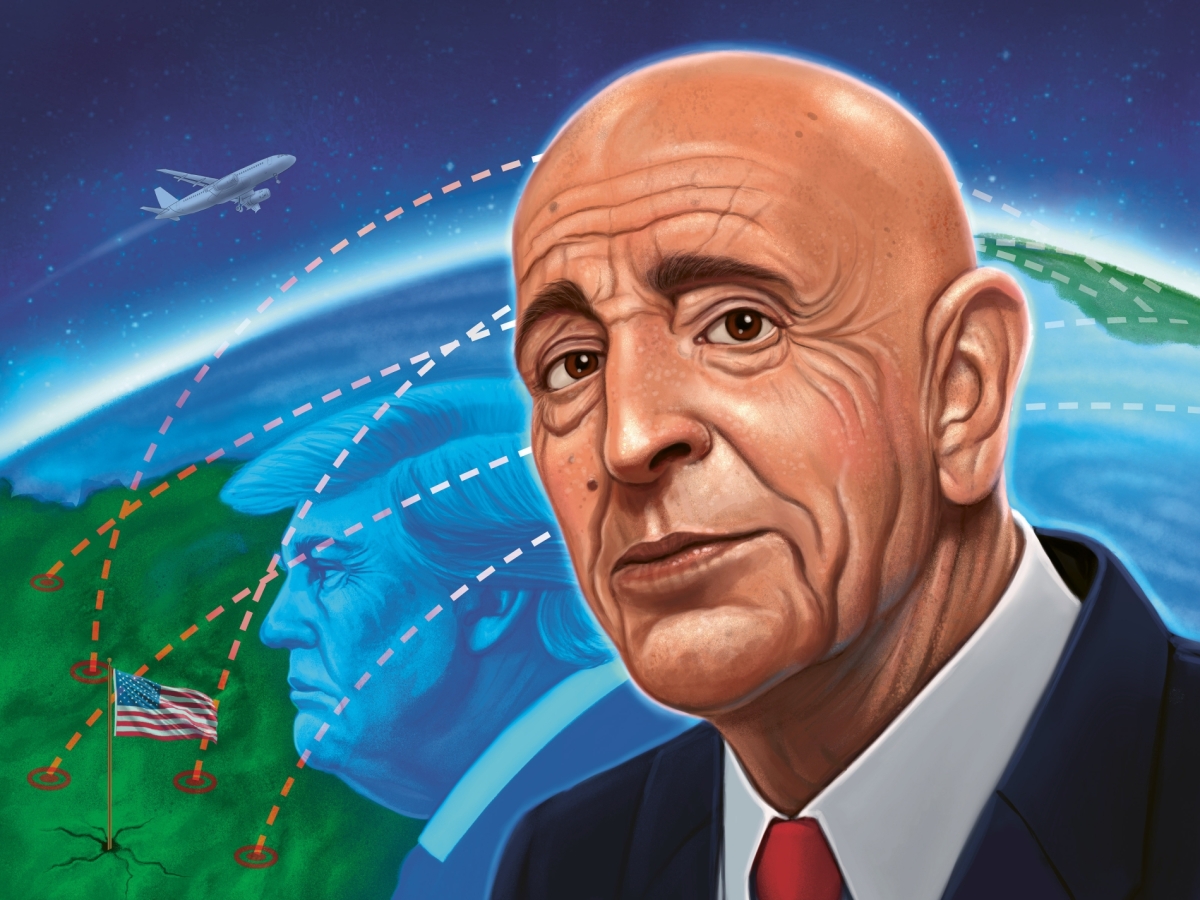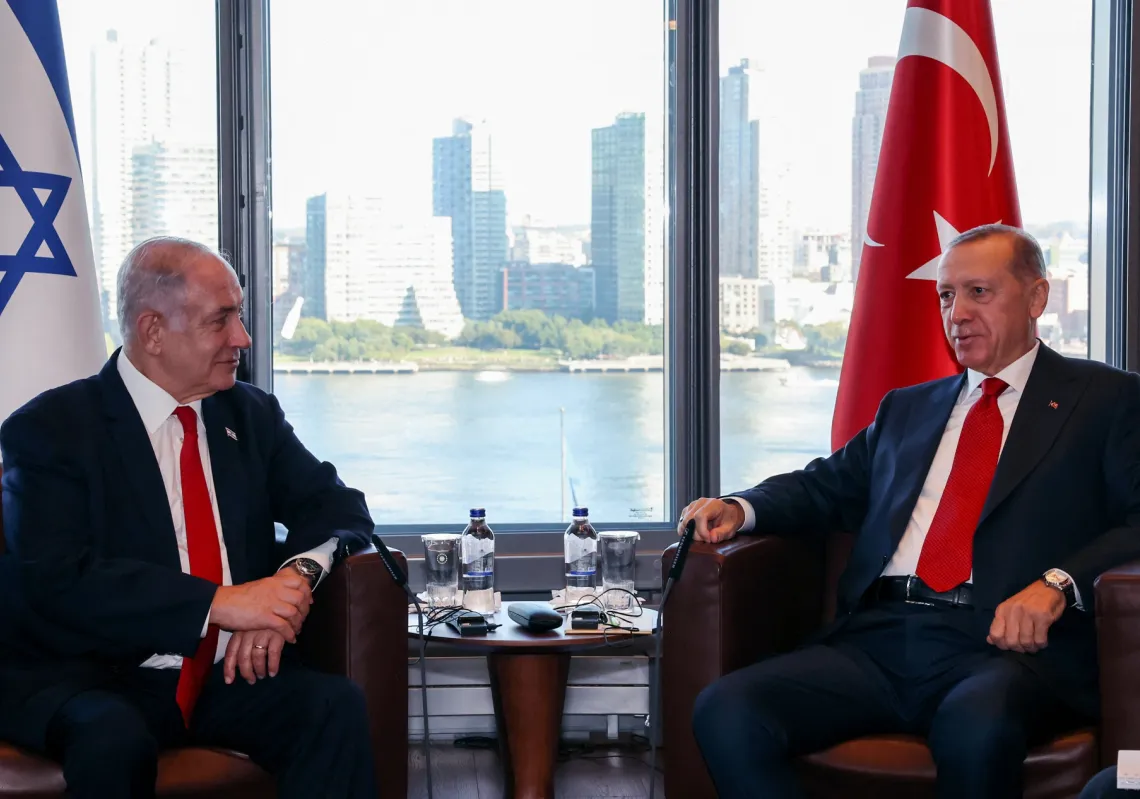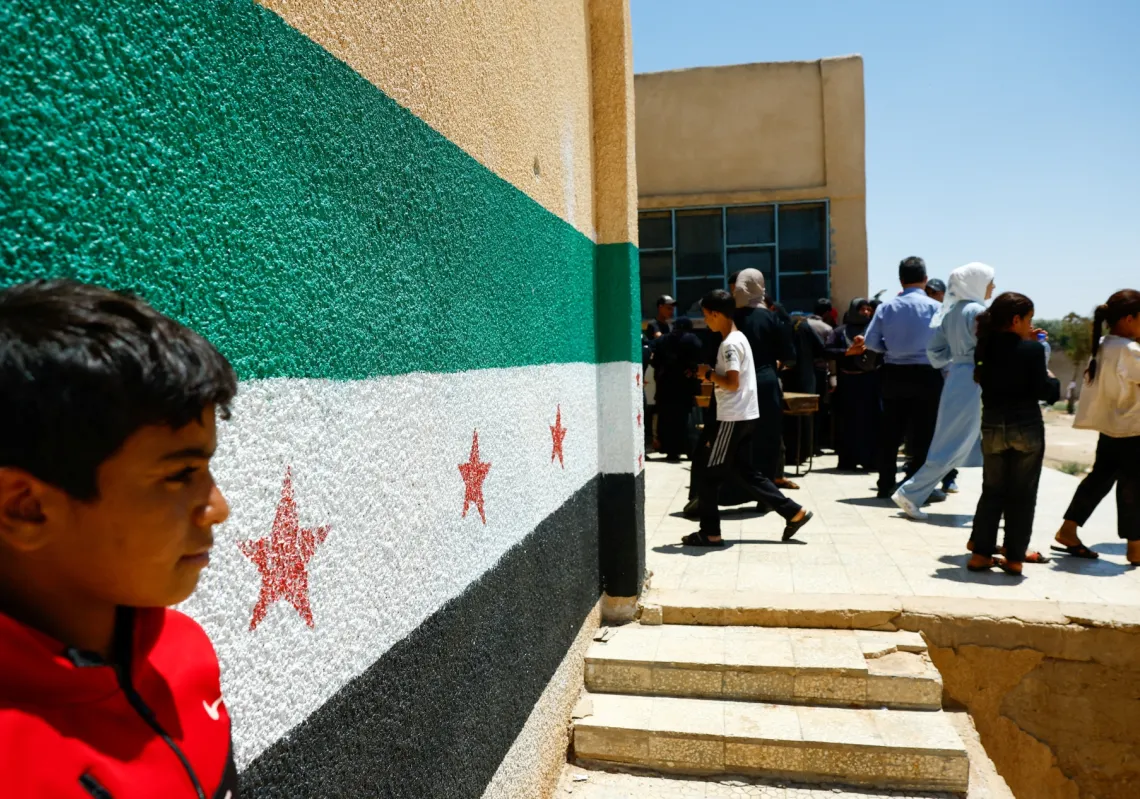Exactly 40 years ago, real estate investor Donald Trump bought a 20% stake in Alexander’s department stores from real estate investor Tom Barrack. Three years later, they were doing business again, when Trump bought Manhattan’s Plaza Hotel from Barrack for $410mn. Similar in age, both men were in their late 30s when they shook hands over Alexander’s. Today, they are friends, and both are approaching 80.
Shortly after Trump won re-election to the White House at the end of last year, he nominated Barack as the US ambassador to Türkiye (confirmed by Congress in April). It is an important portfolio. A NATO member linking Europe to the Middle East, US-Türkiye relations had soured under the presidency of Joe Biden.
A few weeks after his nomination was confirmed by Congress, Trump asked Barrack to widen his remit, appointing him as Special Envoy for Syria. To many, it was a canny move, given the overlapping issues between Ankara and Damascus. In reality, Barrack’s role does not end there: it includes Israel, Lebanon, the Kurdish groups, and the Abraham Accords. Sedat Ergin, a leading Turkish columnist, labelled him “more than an ambassador” in an article.
Lebanese roots
Barrack’s has family roots in the region: his grandparents were Lebanese Christians who emigrated to the United States on an Ottoman passport 125 years ago. Speaking to Türkiye’s official Anatolian Agency, he said he was “returning to where my DNA comes from”.
Yet the requirements of the role leave no time for leisure or niceties. Indeed, foreign ambassadors in Ankara say they have been unable to meet him (the US Embassy in Ankara did not organise a traditional 4 July reception this year).
Barrack’s role as principal US envoy to both Türkiye and Syria gives him better oversight and perspective, given Türkiye’s involvement in Syria, not least in relation to the autonomous armed Kurdish groups in Syria’s north-east that Ankara sees as an existential threat.
His friendship with Trump and their relationship of trust give Barrack far greater sway in the region than another US ambassador might have.
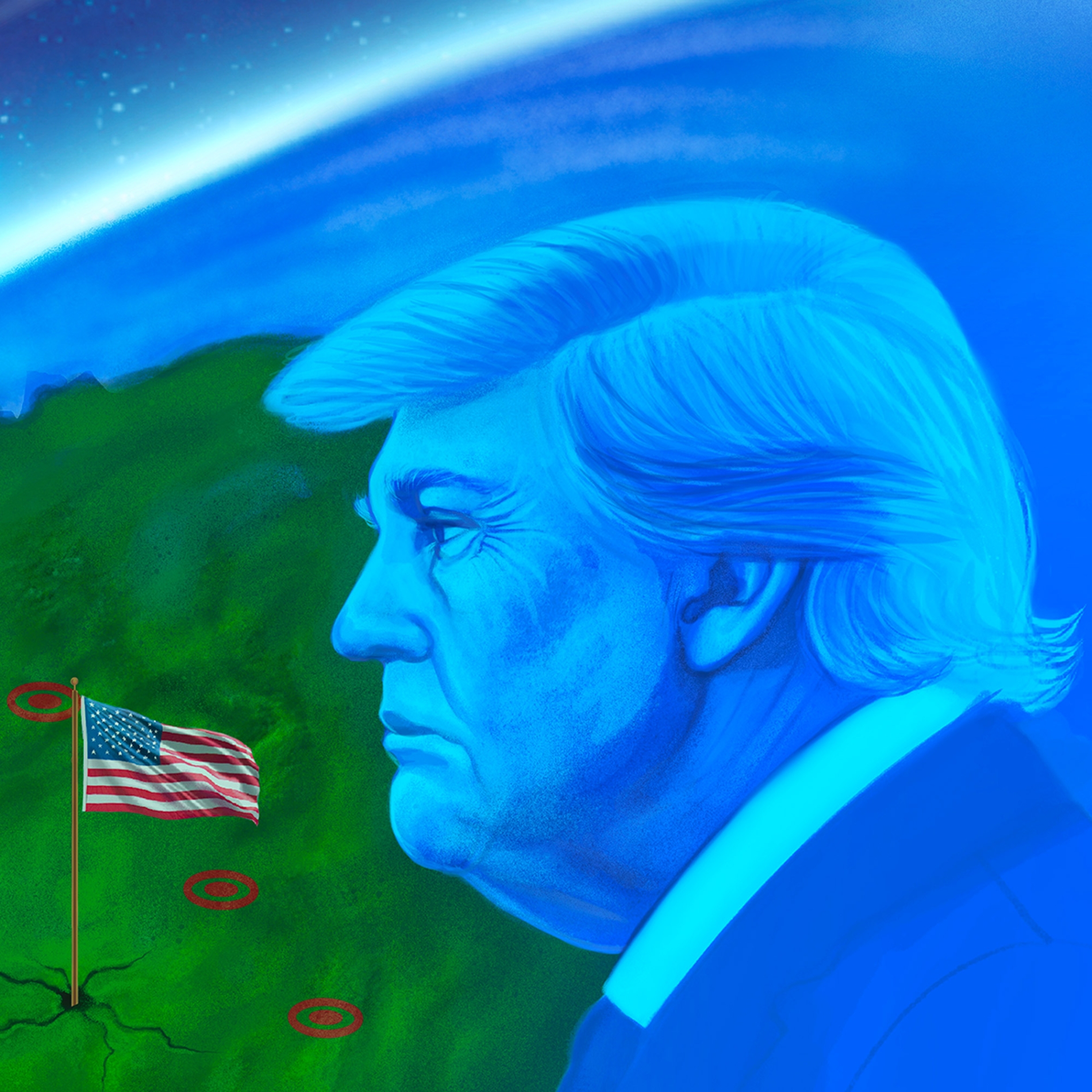
On 24 May, Barrack had his first meeting with Syria’s interim President Ahmed al-Sharaa in Istanbul, where the Syrian leader was being hosted by Türkiye’s President Recep Tayyip Erdoğan (with whom Trump has friendly relations). Days later, Barrack travelled to Damascus to raise the American flag at the official US Residence, meeting al-Sharaa for the second time.
Turkish and American sources indicate that it was Barrack’s advice that led to the US lifting sanctions on Syria and removing al-Sharaa’s Hayat Tahrir al-Sham (HTS) from the list of foreign terrorist organisations. Having acted in good faith, however, Barrack is clear about American expectations of the new Syrian government. It is a balancing act, however, with al-Sharaa considered to be a potential assassination target owing to his policy of tolerance and his government’s efforts to disarm Syria’s militias.
Learning from the past
Barrack is aware of the regional sensitivities. On 25 May, he said: “A century ago, the West imposed maps, mandates, pencilled borders, and foreign rule.” Referring to a secret 1916 accord between Britain and France that divided Ottoman territory, he added: “Sykes-Picot divided Syria and the broader region for imperial gain—not peace. That mistake cost generations. We will not make it again.”
In the multi-religious, multi-ethnic Ottoman Empire, different religious communities had a degree of autonomy to manage their own affairs in areas such as education, law, and religious practices, under an administrative framework known as the ‘millet system’. Barrack highlighted this recently, saying it offered valuable lessons, adding that he believes that the future of the region should be determined by its people.
In June, he went to Israel and spoke to senior officials about Syria and Israel-Türkiye tensions, before touring the occupied Golan Heights with Defence Minister Israel Katz, where Israel has deployed troops across the demilitarised zone on the Syrian side and beyond since al-Sharaa’s forces overran the Syrian army of Bashar al-Assad (who then fled to Russia).
On 19 June, Barrack visited Lebanon and presented a US proposal for the disarmament of non-state groups, not least Hezbollah. He was back in Beirut just a few weeks later, on 7 July, where he said he was “unbelievably satisfied” with Lebanon’s response. His enthusiasm soon waned, however, when he complained about the pace of implementation.
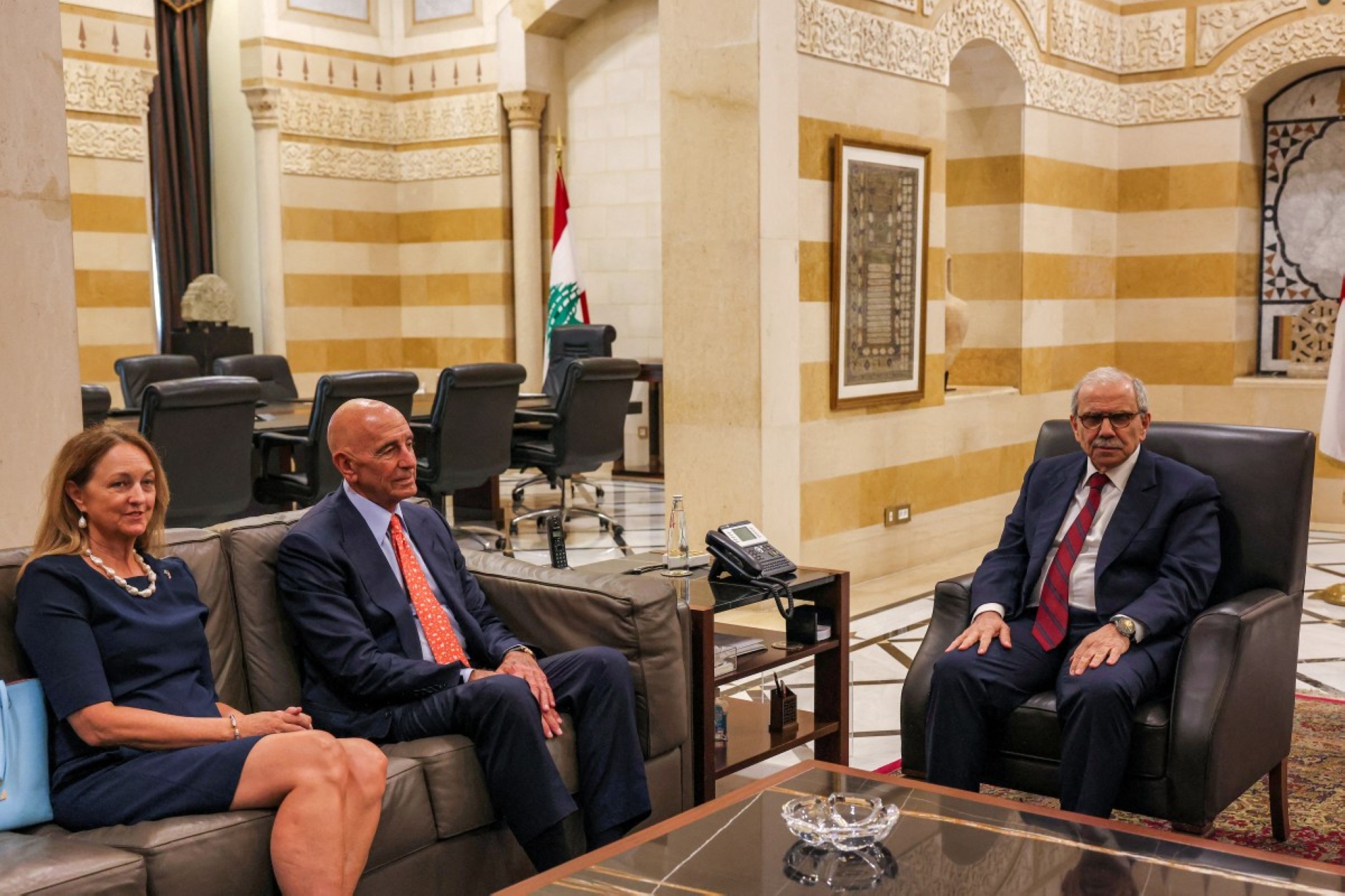
Barrack hopes to engineer a peace between Syria and Israel, perhaps with Syria joining the Abraham Accords at some point in the future, but does not want to press al-Sharaa into initiating changes too hastily, given his own position in the new Syrian state. He is keen to bring in outside help to rebuild Syria, recently thanking Qatar for funding Azerbaijani gas supplies to Syria (enough to power five million homes) and Turkish groups for building a new international airport in Damascus.
Syria’s Kurdish groups
One of the critical files concerns Syria’s autonomous Kurdish-led SDF, which operates in the country’s north-east, where it controls much of Syria’s oil fields. The US has supported the SDF and its YPG armed wing for a decade in the fight against Islamic State (IS) jihadists, but Türkiye considers the YPG to be an extension of the terrorist PKK group, putting Ankara and Washington at odds.
The US is recalibrating its policy here, with Barrack having participated in the meetings between the SDF and Damascus and meeting with the two sides separately. In March, the government and the SDF appeared to have an outline agreement in the latter’s integration into Syrian state structures, but since then, the SDF has said it wants to keep a level of autonomy over administration, its armed forces, and natural resources—all red lines for Damascus.
Barrack is understood to be annoyed with the Kurds and expressed frustration at a press briefing in New York on 11 July. “The US owes them for being partners (in the fight against IS), but not to the extent to offer them the ability to have their own independent government within a government,” he said. The envoy further ruled out any attempt to divide Syria along ethnic or sectarian lines, adding: “One country, one nation, one military.”
The comments were well received in Ankara and criticised by the SDF.
Barrack has President Trump’s full support, but it is unclear whether his comments reflect the views of the Pentagon, which has spent a decade arming, training, and liaising with the YPG, and which still relies on the Kurds to operate vast prisons holding IS fighters.
Barrack’s recent praise of Mazlum Abdi and YPG, immediately after his criticisms, may be seen as a response to warnings from Washington.
Türkiye-Israel tensions
Regarding relations between Türkiye and Israel, Barack thinks the tensions are due in part to misunderstandings about each other’s regional policies, reminding Tel Aviv and Ankara that they once had strong relations and that these can be restored. Perhaps they can, but relations over Israel’s war on Gaza have led to the sharpest deterioration in years, to such an extent that some now fear the pair may clash over Syria.
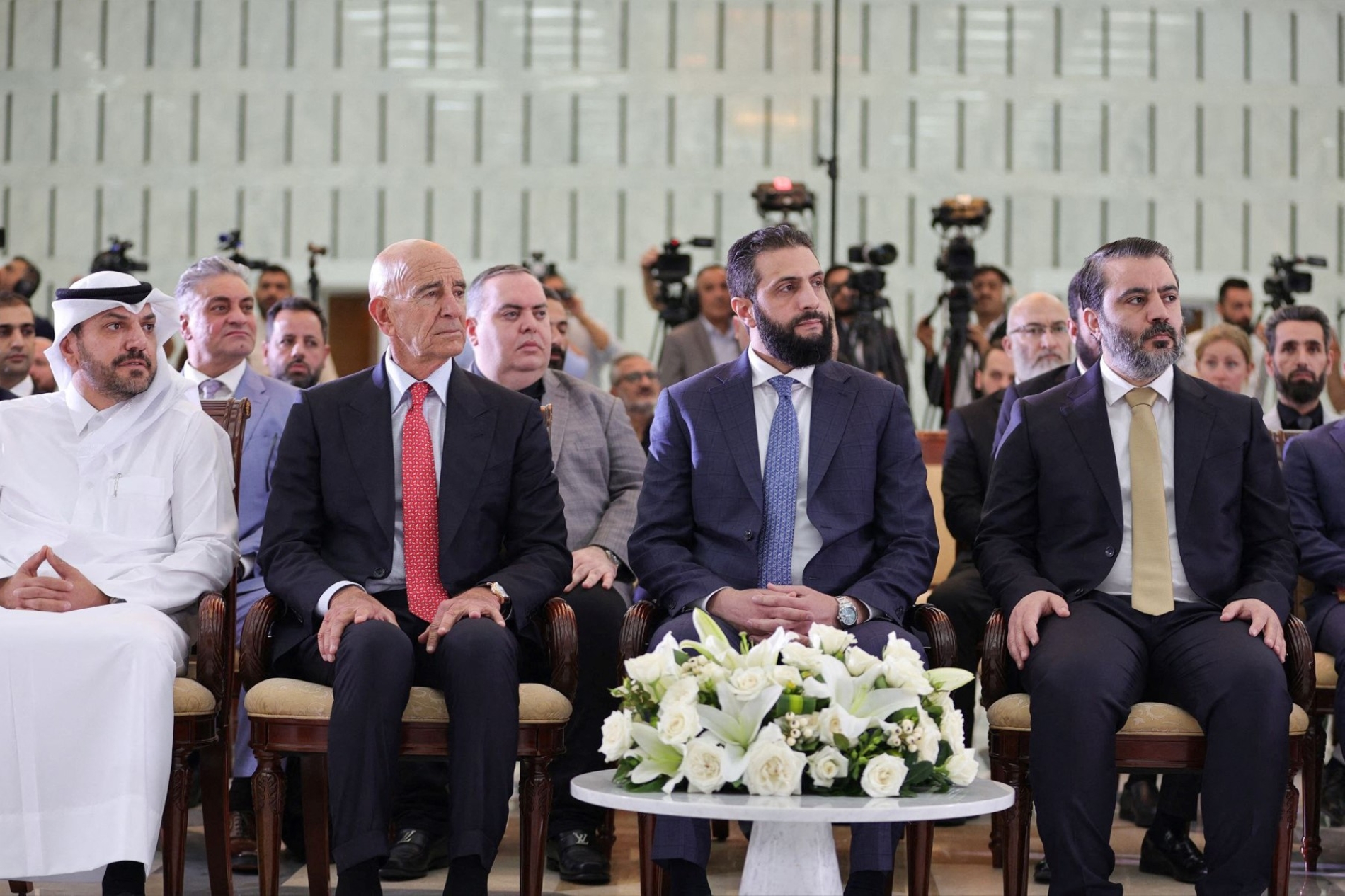
The recent violence in Sweida led to Israeli warplanes bombing Syrian government positions both in the country’s south and in Damascus, which led Barrack to swiftly ensure that all parties end the fighting and that Türkiye and Israel did not come to blows.
As for US-Türkiye relations, Trump sees Erdoğan as a close partner in the region. Unlike many of his White House predecessors, Trump’s more pragmatic pursuit of deals and diplomatic solutions means that the democratic standards and rights restrictions in foreign countries are less of a hindrance to bilateral relations. Indeed, he is even said to admire authoritarian rulers.
In this vein, the recent imprisonment of opposition leaders in Türkiye (including Erdoğan's principal political rival, Ekrem İmamoğlu, Mayor of Istanbul) plays second fiddle to bilateral cooperation in areas such as defence, intelligence, and security, where
Türkiye has achieved significant success in recent years, becoming one of the world’s leading producers of unmanned aerial vehicles (UAVs) for use in combat and developing its own fighter aircraft.
The latter was a result of Türkiye being kicked out of the F-35 fighter jet development programme because it bought Russia’s advanced S-400 air defence system. Ankara would like to rejoin. To that end, it plans to buy new F-16 aircraft and modernisation kits. Barrack has said he is hopeful of progress by the end of the year.
Ambassador Barrack’s ambitions may far exceed his deliverables, but it is no bad thing to aim high. One of the most influential US ambassadors in the Middle East in recent years, Tom Barrack, faces numerous challenges; he must tie up many loose ends and may have a chance of solving several seriously thorny issues. It isn’t quite like selling the Plaza Hotel, but many of the skills are the same.


